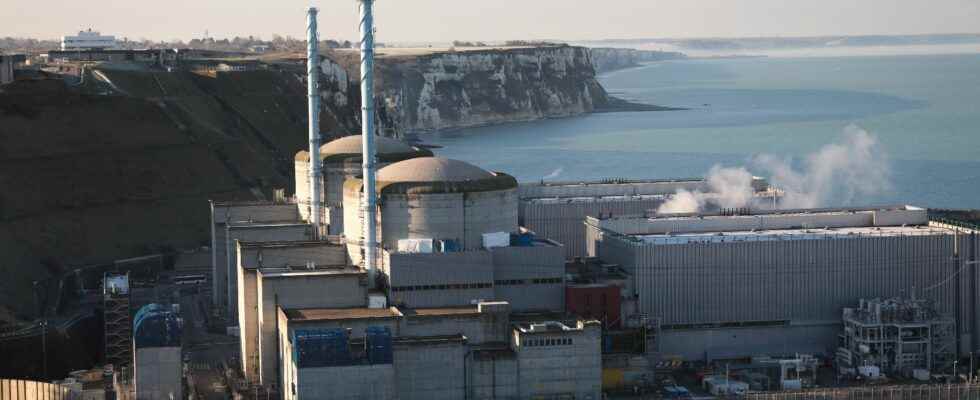A week after the adoption of the bill on renewable energies, place to nuclear. This Tuesday, January 17, the Senate is considering at first reading the bill aimed at accelerating the construction of new EPRs and small modular reactors. Announced by Emmanuel Macron a year ago during his speech in Belfort, the revival of the nuclear industry in France – should make it possible to concretize an “ambitious and sustainable” nuclear policy, essential to achieve carbon neutrality by 2050 The government is working on the construction of 14 EPRs by 2050, an ambition that fits in a context of climate crisis, and which has been reaffirmed after the energy prices have soared since the start of the conflict in Ukraine.
The bill aims to “save time” – up to 56 months hoped, or 5 years saved – by simplifying the administrative procedures for the construction of these new facilities near existing nuclear sites. This for a period limited to 15 years in the initial text, increased to 20 years by the senators in committee. For the Minister of Energy Transition, Agnès Pannier-Runacher, heard in the Senate on January 11, “the text thus makes it possible to reduce the legal risk due to the updating of these documents.”
Concretely, the sites will be exempted from town planning authorization because the control of conformity will be ensured by the State. The right of expropriation will be relaxed. And work on buildings not intended to receive radioactive substances may be undertaken before the public inquiry is closed. The next two EPRs should be located in Penly (Seine-Maritime), followed by two others in Gravelines (North), according to EDF’s plans. “The objective of the first pour of concrete, which is very ambitious, is by the end of the five-year period, so 2027 […] rather end of 2027”, said Agnès Pannier-Runacher. As for the commissioning, it will be necessary to wait “2035-37”.
Objective: “simplify and secure”
The senators also want to break down pre-existing “locks” by removing, in particular, the objective of reducing the share of nuclear energy in electricity production to 50% by 2035, and by imposing the revision of the decree which provides for the closure of 12 reactors, in addition to Fessenheim. France, which derives about 70% of its electricity from nuclear power, decided in 2015 to diversify its supply by closing 14 of its 58 reactors, before a reversal announced by the president.
The senators therefore adopted a series of amendments on “two major axes: simplifying and securing”. In particular, this involves integrating the risks linked to climate change in the safety demonstration of reactors and cyber-resilience in their protection against malicious acts. Government and senatorial majority will still find on their way the environmental senators, for whom “this new nuclear goes against the grain of history”, according to their leader Daniel Salmon. Environmentalists will defend a motion to reject the text outright, which, according to them, puts parliamentarians before the “accomplished fact”, while a public debate on the construction of new nuclear reactors is not over. “This text in no way preempts the decisions that would be taken on the future of the French energy mix or on the construction of the EPR2 program”, we are assured at the ministry.
An expensive project
According to the projections of the electricity network operator RTE, this project has a lower overall cost of 10 billion euros per year for the scenario with renewal of the nuclear fleet: 60 billion annually, against 70 billion for a scenario without renewal. But who will assume the cost, between the State, the consumer, and EDF whose debt is colossal? “Several financing methods are on the table”, we answer to the Ministry of Energy Transition.
According to EDF, the construction cost of the six new EPR2s is estimated at 51.7 billion euros (excluding financing costs), plus 4.6 billion in the event of difficulty in implementation. The complete renationalisation of EDF should therefore make it possible to attract the confidence of investors. Moreover, investments in nuclear power are initially pharaonic since it takes years to produce the first KWh. The only EPR under construction in France, in Flamanville (Manche), is now 12 years behind its commissioning and a bill multiplied by four.
In addition to the financial means, there is also the question of human resources: “Beyond the cost, one can wonder if such an industrial program is feasible”, comments to AFP the analyst Mycle Schneider, coordinator of the WNISR report. , which notes for example the lack of arms in the sector. But for the government like EDF, feedback from EPR sites around the world and the mass production model will save money.
